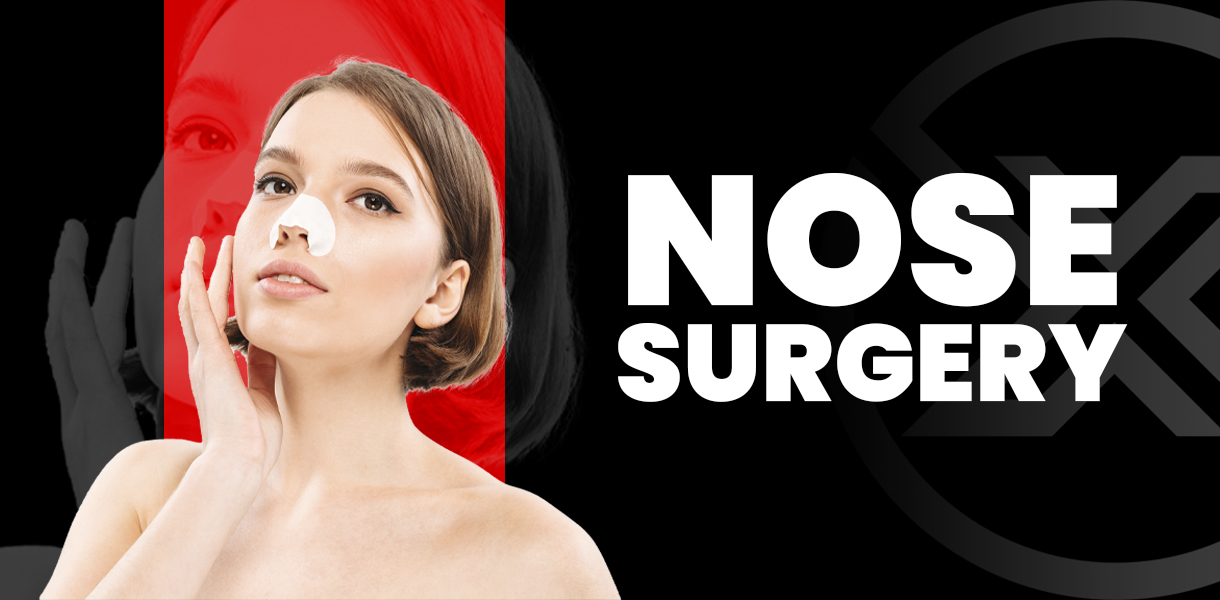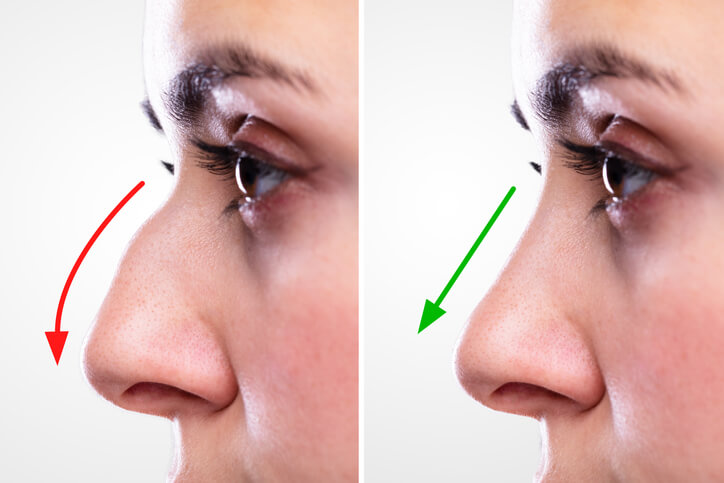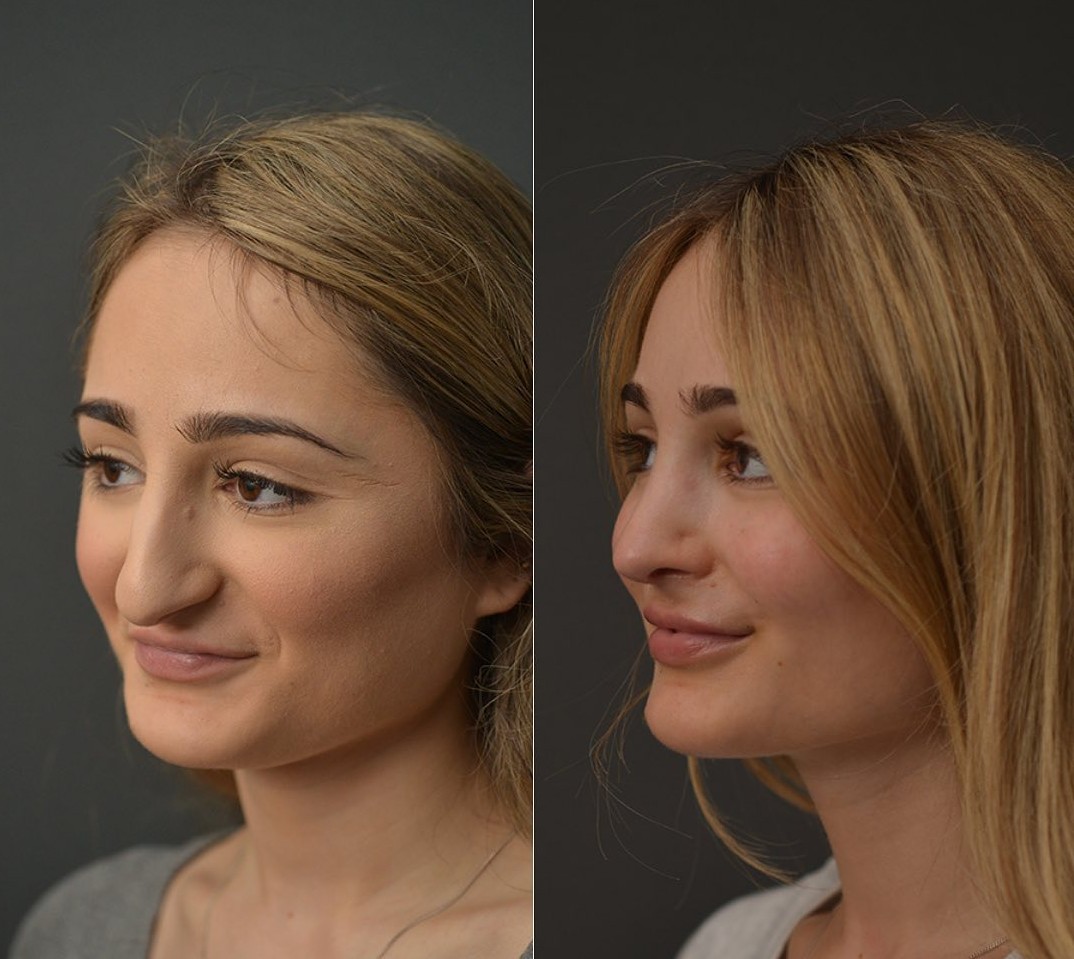
Nose surgery, also known as rhinoplasty, is a common cosmetic procedure that aims to enhance the appearance and function of the nose. This comprehensive guide will provide you with all the information you need to know about nose surgery, from the common reasons for undergoing the procedure to the recovery process and potential risks involved.
There are multiple reasons why individuals opt for nose surgery. One of the primary motivations is to improve the aesthetic appearance of the nose. Many people are unhappy with the shape, size, or symmetry of their noses and seek rhinoplasty to achieve a more balanced and attractive facial profile. Additionally, nose surgery can correct functional issues such as a deviated septum, which can hinder breathing and cause sleep apnea or snoring.

Nose surgery techniques can vary depending on the desired outcome and the specific needs of the patient. One of the most common techniques is open rhinoplasty, where an incision is made on the columella, the strip of skin that separates the nostrils. This allows the surgeon to have better access to the underlying structures of the nose, making it suitable for complex cases.
Another technique is closed rhinoplasty, which involves making incisions inside the nostrils. This technique is preferred for patients who require minor adjustments or have less complex nasal issues. Non-surgical options, such as dermal fillers, can also be used to reshape the nose temporarily, offering a non-invasive alternative for those seeking minor changes.

Nose surgery offers a range of benefits, both cosmetic and functional. From an aesthetic standpoint, it can enhance facial harmony and boost self-confidence. By addressing functional issues, such as a deviated septum, can improve breathing and alleviate symptoms like snoring or sleep apnea. Additionally, nose surgery can correct congenital defects, trauma-related deformities, and previous unsatisfactory results from previous surgeries.
Choosing the right nose surgery technique is crucial to achieving the desired outcome. It is essential to consult with a qualified and experienced plastic surgeon who can assess your unique needs and provide expert recommendations. Factors that need to be considered include the complexity of your case, your desired results, and the surgeon’s expertise in a specific technique.
During your consultation, the surgeon will evaluate your nasal structure, discuss your goals, and provide a comprehensive treatment plan tailored to your individual needs. They will explain the advantages and limitations of each technique, ensuring you make an informed decision that aligns with your expectations.
Proper preparation before nose surgery is essential to ensure a smooth procedure and optimal results. Your surgeon will provide you with specific instructions to follow in the days leading up to your surgery. These instructions may include avoiding certain medications that can increase bleeding risk, quitting smoking, and arranging for a responsible adult to accompany you on the day of surgery.
It is crucial to have a detailed discussion with your surgeon about any pre-existing medical conditions, allergies, or medications you are taking. They will guide you on the necessary precautions to take and may request additional tests or medical clearance from other specialists if needed.
The nose surgery procedure typically begins with the administration of anesthesia, ensuring your comfort throughout the surgery. The surgeon will then proceed with the chosen technique, making incisions as planned. They will carefully reshape the bone, cartilage, and tissue to achieve the desired aesthetic or functional changes.
Once the necessary adjustments have been made, the incisions are meticulously closed using sutures. A splint or cast may be applied to support the nose during the initial healing phase. The duration of the procedure can vary depending on the complexity of the case but generally lasts for a few hours.
After nose surgery, the initial recovery period is crucial for optimal healing and results. You can expect some swelling, bruising, and discomfort, which can be managed with pain medication prescribed by your surgeon. It is essential to follow the post-operative instructions provided to you, including keeping your head elevated, avoiding strenuous activities, and attending all follow-up appointments.
During the recovery period, it is normal for the swelling to gradually subside, allowing you to appreciate the changes in your nose over time. Full recovery can take several weeks to months, depending on the extent of the surgery and individual healing factors. Your surgeon will guide you through each stage of the recovery process, ensuring a smooth and successful outcome.
As with any surgical procedure, nose surgery carries certain risks and potential complications. These can include infection, bleeding, adverse reactions to anesthesia, scarring, and asymmetry. It is crucial to choose a qualified and experienced plastic surgeon to minimize these risks and ensure the highest level of safety.
During your consultation, your surgeon will discuss the potential risks specific to your case and explain how they can be minimized. It is essential to follow all pre-operative and post-operative instructions to reduce the likelihood of complications and promote a smooth recovery.

When considering nose surgery, choosing the right clinic is a vital step towards achieving your desired results. Clinixenter is a renowned and trusted clinic known for its exceptional expertise in nose surgery. With a team of experienced plastic surgeons and state-of-the-art facilities, Clinixenter offers a safe and comfortable environment for your procedure.
Clinixenter specializes in various nose surgery techniques, ensuring that each patient receives customized care based on their unique needs. The clinic’s commitment to excellence and patient satisfaction has earned them a stellar reputation in the field of cosmetic surgery.
The success stories and testimonials from satisfied nose surgery patients at Clinixenter speak volumes about the clinic’s expertise and dedication to providing exceptional results. Patients rave about the natural-looking outcomes, improved functionality, and the compassionate care they received throughout their journey.
These testimonials serve as a testament to the clinic’s commitment to delivering personalized care, achieving patients’ goals, and exceeding expectations. When choosing a clinic for nose surgery, hearing from those who have had a positive experience can provide valuable insights and help you make an informed decision.
How long does the recovery period last after nose surgery? The recovery period can vary from person to person, but generally, it takes several weeks to months for the swelling to completely subside and for the final results to be visible.
Can nose surgery correct breathing issues? Yes, nose surgery can correct breathing issues by addressing structural abnormalities, such as a deviated septum or collapsed nasal valves.
Is nose surgery painful? There may be some discomfort during the initial recovery period, but pain medication prescribed by your surgeon can help manage any pain or discomfort.
Nose surgery, or rhinoplasty, is a popular procedure that can greatly enhance both the appearance and function of the nose. Whether you are seeking cosmetic improvements or addressing functional issues, choosing the right technique and clinic is essential for a successful outcome. By following the guidance provided in this ultimate guide, you are well-equipped to make informed decisions and embark on your nose surgery journey with confidence.
[CTA: If you are considering nose surgery, contact Clinixenter today to schedule a consultation with one of their expert plastic surgeons. They will guide you through the process and help you achieve the nose of your dreams.]
09:00 AM to 12:00 PM
Support Center 24/7
Orta Mh. Kanuni Sk. No: 5 (Kartal, İstanbul) W663+42
Copyright 2024 Kurgu. All rights reserved.
 Online
Aylin Yazici
Online
Aylin Yazici
Use this feature to chat with our agent.
WhatsApp us